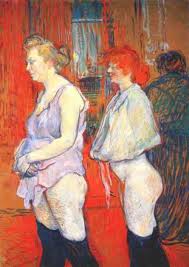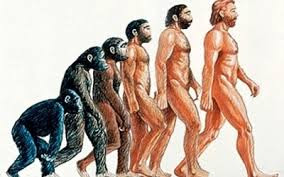In the two years since I’ve been writing this blog, we’ve explored just about every aspect of our
anatomy, from the beautiful intricacies of its form and function to the bizarre
ways we modify and even mutilate our bodies. So as this writing endeavor draws to a close and I focus on other projects, I thought I'd end by discussing an aspect of the body that has eluded scientists
and philosophers for centuries – the quest for the human soul.
 Throughout
history, the soul has been part of our search for understanding how the human
body works. Ancient terms to describe the soul – from Latin’s anima to the Greek psyche – usually refer to the vital forces within the body, be they
motion, movement, or breath. And since the presence of the soul was believed to separate the
living from the dead, it seemed only logical that it should
reside somewhere in the body. All we had to do was find it.
Throughout
history, the soul has been part of our search for understanding how the human
body works. Ancient terms to describe the soul – from Latin’s anima to the Greek psyche – usually refer to the vital forces within the body, be they
motion, movement, or breath. And since the presence of the soul was believed to separate the
living from the dead, it seemed only logical that it should
reside somewhere in the body. All we had to do was find it.
Some of the
earliest references to the soul go back over five thousand years to the Egyptians, who
believed the soul was composed of five parts, the most important of which
resided within the heart. The heart was believed to be the animating life force,
the source of our feelings, thoughts, and will. In fact, the weight of the
heart at death determined the soul’s destiny. If the heart was considered too
heavy, it would be consumed by a demon, subsequently ending one’s bid for the
afterlife. This cardiocentric view of the soul persisted throughout much of
history.
 Fast forward a few
thousand years to the Greek poet Homer, who claimed there were two types of souls.
The first, which resided somewhere in the chest, controlled our emotions,
everything from joy to reason to rage. The second type of soul was tied to a
person’s individual identity and appeared only in dreams. It had no specific
location within the body, but served as the animating life force. Homer
believed it was this aspect of the soul that fled the body at the time of
death.
Fast forward a few
thousand years to the Greek poet Homer, who claimed there were two types of souls.
The first, which resided somewhere in the chest, controlled our emotions,
everything from joy to reason to rage. The second type of soul was tied to a
person’s individual identity and appeared only in dreams. It had no specific
location within the body, but served as the animating life force. Homer
believed it was this aspect of the soul that fled the body at the time of
death.
The foundations of
Western philosophy, forged by the likes of Socrates, Aristotle, and Plato, also contemplated the riddles of the soul. Plato considered the soul to be of
celestial origin, the immortal essence of a person that was divided into three
parts. The rational aspect, which controlled reason, was of primary
importance and thus located within the brain. The spirited aspect, responsible for
courage, resided in the chest, and the appetitive portion, which governed love
(of food, drink, and “loving delights”) was located in the abdomen. The goal
of life was to achieve a balance within the soul, especially regarding spirits
and appetites; a human struggle that continues to this day.
Plato’s student,
Aristotle, stoked his own ideas about the soul. He agreed the soul formed the
essence of an individual but, unlike Plato, Aristotle believed the soul could
not be separated from the body. So much for its immortality… He too divided the
soul into three parts but, in his view, the soul controlled bodily functions
and was therefore defined as such: the vegetative function (nourishment and
reproduction); the sensitive function (sensation and movement); and the
intellectual function (cognition and deliberation). Aristotle also believed
that all animals possessed a soul, although the intellectual functions were
confined to humans. And like the Egyptians of long ago, Aristotle believed
the heart served as keeper.
 Early Christians
took a broader view. The soul not only gave form to the body, but could be
found in every aspect of our anatomy. It was believed the soul entered the body
only after the fetus was fully formed. “Delayed ensoulment” coincided with the
“quickening,” thus once the mother felt the baby move, the soul was
considered to have arrived.
Early Christians
took a broader view. The soul not only gave form to the body, but could be
found in every aspect of our anatomy. It was believed the soul entered the body
only after the fetus was fully formed. “Delayed ensoulment” coincided with the
“quickening,” thus once the mother felt the baby move, the soul was
considered to have arrived.
Around the seventh
century AD, as the Dark Ages blanketed humanity, the belief in delayed
ensoulment persisted. The Roman Catholic Church decreed abortion acceptable as
long as it was carried out before the soul arrived, and this was upheld well
into the 19th century.
With the blossoming of the Renaissance in the 1300s, Leonardo da Vinci incorporated the search for
the soul in his anatomical studies, declaring the middle ventricle of the brain
as the most logical spot. René Descartes took up the banner a few hundred years
later, agreeing with Leo on the general location of the brain, but claiming the
pineal gland was a more likely location.
As scientists
learned more about the inner workings of the brain, belief in a craniocentric soul persisted, well into the 20th century. It seemed only natural
that the seat of consciousness should also house the soul. But as science advanced
and our understanding of the human body crystalized, the soul as animating life
force slowly fell away. The mystical realms of life could now be understood in
terms of biochemistry, neurology, and genetics, and issues of the soul were
gradually relinquished to the theologians.
 If you ask me if we possess a soul, I'd have to say I don’t know. The scientist in me embraces the tangible explanations for
what constitutes a living body and I’m far more comfortable discussing cellular
respiration than arguing the validity of delayed ensoulment.
If you ask me if we possess a soul, I'd have to say I don’t know. The scientist in me embraces the tangible explanations for
what constitutes a living body and I’m far more comfortable discussing cellular
respiration than arguing the validity of delayed ensoulment.
But that in no way
diminishes my fascination with life or the wonder I feel when I contemplate the
intricacies of our anatomy. Regardless of our beliefs, we can all agree the human body is a truly astounding machine, one that not only sustains us but
enables us to experience our world.
As for the ghost
in the machine... I’ll leave that to the theologians.
Thank you so much
for reading.
Rachel


















































